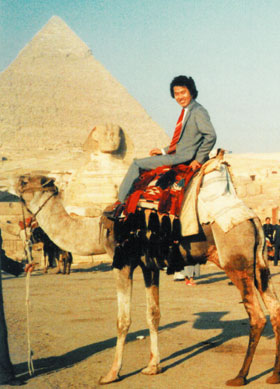- 저자
- 노리나 허츠 지음
- 출판사
- 비즈니스북스 | 2014-05-15 출간
- 카테고리
- 자기계발
- 책소개
- 하루에도 무려 1만 가지에 이르는 크고 작은 결정을 내려야 할 ...
스마트시대에 필수적인 판단력을 기르는 팁을 알려주는 책.
요즘 사람들은 스스로 생각하기를 싫어한다. 왜 그런 결정을 내렸는지 물어보면 제대로 설명을 못하거나 비이성적인 근거를 사용하기때문에 남들과 다르게, 덜 후회하면서 살고 싶으면 정보의 홍수시대에, 혹은 사기꾼의 시대에 더 나은 선택과 똑똑한 결정을 하는 법은 매우 중요하다.
그러기 위해서는 스스로 전문가가 되어야한다. 스스로 지식 기반을 구축하고, 독립적은 사고를 할 수 있어야 한다.
- 데이터를 분석하고, 데이터 이면에 놓친점 or 함정을 파악하고, 다양한 집단의 의견을 듣고, 언제나 팩트체크, 팩트체크.
온라인을 너무 믿지말자. 정보의 바다 속엔 쓰레기도 많다는걸 알지 않는가?
- 그리고나서 주변에 영향을 받지 않는 상태에서 결정을 내려야한다(특히 중요한 의사결정을 내리기 전에 충분한 수면, 평정심, 낮은 스트레스, 적당한 혈당 등이 중요하다)
Q1. 1번-3인칭으로 말해야 더 믿을만하고, 경쟁력 있는 후보자로 간주되었다.
+) 육즙이 풍부한 이탈리안 시푸드 필레가 시푸드 필레보다 더 높은 점수를 받는것처럼 단어의 선택만으로도, 전문단어, 공포와 사이비 과학을 섞은 단어, 이름, 언어의 미묘함 등으로도 의사결정에 영향을 미칠 수 있다.
Q2. 4번-꼴찌는 재무장관 그룹, 실제로 고양이와 전문투자자팀이 붙어 고양이가 이긴 경우도 있음.
우리는 전문가가 말할 때면 마치 스스로 생각하기를 멈추는 경향이 있다. 의사, CEO, 펀드매니저, 교수 등 자격증과 난해한 전문 용어 등은 우리의 의사결정력을 마비시키고, 사기꾼 협잡꾼 무능력자들까지도 보호해준다. 특히 전문가들과 그들의 실험결과는 누구의 펀딩을 받느냐에 따라 객관성이 사라질수도 있다.
Q3-3번- 숫자뿐만 아니라 색깔, 향기, 접촉,무게, 위치, 질문받을 때 상황 등도 의사결정에 영향을 미친다.
Q4-1번- 통계의 오류일 뿐.
Q5-3번 - 사람들은 배가 고플때,흥분 했을때 성급한 결정을 내린다. 실제로 판사들의 가석방률은 간식시간 전 확 떨어짐.
Q6- 2번 - 색상에 영향을 받음. 다른 예로 컬러 슬라이드 활용자가 고급 데이터를 가지고 있다고 여겨지고, 투자자들에게 주식에 관한 정보를 빨간색 문서로 제공하면 그 주식의 가치 하락에 집중하여 덜 사고, 동일한 정보를 녹색 문서로 제공하면 투자자들은 해당 주식의 가치 상승 가능성에 집중해 더 사고자 한다.
Q7- 3번 - 혈당수치가 낮을때, 기분이 좋을 때, 배가 고플때, 스트레스가 높을때, 수면 부족일 때 근시안적인 선택을 하는 성향이 강하다. 하지만 화장실이 급할때는 오히려 충동을 저지하고 조절해야 한다고 의식하게 된다. 이 본능적인 느낌이 우리를 인내하고 좀 더 가치 있는 보상을 받는 쪽으로 선택하도록 이끈다.
Q8- 답은 인터넷에.. 닷컴회사 버블이 한창이던 시절, 학습교재 회사가 핑크몽키닷컴, 감자칩제조업체가 고레이첼스닷컴으로 바꾼 뒤 주가가 상승했음. 시간이 부족한 투자자들은 당시 인터넷과 관련된 주식을 사려고 했고, 이름만 보고 고른것.
Q9- 2번- 우리는 방해 자극에 중독되어 있다. 분명 유해한데도 우리는 적극적으로 찾아 나선다.


제1부 왜 우리의 선택은 늘 완벽하지 못할까?
제1장 똑똑한 생각, 그리고 멍청한 결정
스스로 생각하지 않는 사람들│생각의 속도를 넘어선 데이터 홍수│21세기형 소음에 중독되다│무질서의 시대, 어제의 정답이 무너지다│관찰하라, 의심하라, 그리고 생각하라
제2부 당신의 결정이 착각하는 것들
제2장 보지 못한 것과 보지 않으려 한 것
호랑이를 보는가 뱀을 보는가│반짝인다고 해서 다 중요한 것은 아니다│무주의 맹시: 스마트폰을 보다가 교통사고를 당한다면│파워포인트의 위험: 제목 말고 내용이 말하는 것│숫자 숭배와 동전 던지기│모든 중요한 것은 셀 수 없다│기분 좋은 날에는 중요한 결정을 내리지 마라│확증 편향의 오류: 관성이 만들어 낸 무시│어제의 성공이 오늘도 통할 거라는 착각│눈가리개를 벗어던져라
제3장 우리 주위의 ‘선택 설계자’들
나시레마족의 비밀│젊음을 ‘불어넣는’ 거짓말│어떤 단어를 듣느냐에 따라 우리의 선택은 달라진다│다른 이름은 다른 향기가 난다│기준점 오류: 시작이 다르면 결과도 달라진다│존슨 씨의 수상한 사례│빨간 옷이 돈을 부른다?│‘만약’을 상상하여 속임수에 대비하라│배심원처럼 생각하라
제3부 내 생각은 누구로부터 나온 것인가
제4장 의심하지 않는 사람들
하얀 가운을 입은 수상한 사람들│그러니까, ‘전문가’인 제 말을 믿으세요│고양이보다 못한 전문가들의 수준│전문가도 우리와 똑같은 인간이다│돈에 팔려 나간 지식의 ‘객관성’│‘사실’이 바뀌어도 좀처럼 바뀌지 않는 고정관념│의심하기, 질문하기, 스스로 생각하기│조언을 구하되, 도전을 멈추지 마라
제5장 책상물림들은 모르는 경험과 현장의 가치
목양농들에게 배워야 할 것│때로는 일상의 지혜와 경험이 전문가를 능가한다│직원 제안 제도: ‘아래’에서만 보이는 것들│‘예측 시장’에서 정확한 정보를 사는 법│관중에게 전략을 묻지 마라: 현장 전문 지식의 한계│현장은 언제나 거닐어 볼 만한 가치가 있다
제4부 보이지 않는 가상 세계에서 진실을 보는 법
제6장 함께 만들고 함께 엿들어라
거짓말하는 정부, 진실을 말하는 시민│‘더 빠르게, 더 생생하게’: 시민 저널리즘의 시대가 열리다│전염병보다 빠른 소셜 네트워크의 힘│소셜 네트워크 속 ‘엿듣기’가 주는 혜택│디지털 잡음 속에서 중요한 신호를 포착하다│구글 트렌드의 ‘검색어’는 무엇을 의미하는가│하지만 모두가 선한 의도를 가진 건 아니다│컴퓨터가 사랑을 알까?: 맥락화의 한계│디지털 정보의 신뢰도를 평가하는 법
제7장 모니터 뒤에 숨은 거짓말쟁이를 걸러 내라
다마스쿠스의 게이 소녀│얼굴 없는 거짓말쟁이들│교묘해지는 ‘댓글 알바’와 ‘봇’ 군단│인터넷 세상에서 당신은 진짜 모습을 하고 있는가│사람 많은 곳엔 이유가 있다?: 지름길을 주의하라│믿을 만한 정보를 걸러 내기 위한 체크리스트│온라인 사기꾼에게 속지 않으려면
제5부 현명한 선택을 위한 생존 기술을 연마하라
제8장 수학 울렁증을 극복해야 하는 까닭
숫자만 보면 생각을 포기하는 사람들│NASA에서 저지른 어처구니없는 수학 실수│상대적 위험 vs 절대적 위험│암에 걸리지 않았을 확률은?: 조건부 확률의 문제│사실을 담은 ‘숫자’ 그러나 사실이 아닌 ‘내용’│‘가정’이 잘못되면 가정 경제가 파탄 난다│숫자놀음으로 가득한 정치 싸움│쓸모없는 데이터를 만드는 x축과 y축의 함정│표본 편향의 오류: 부분을 전체로 일반화하기│약물에 관한 한, 여성은 금성에서 왔는지도 모른다│누구에게 물어보았는가?: 설문 조사의 위험│숫자와 거리 좁히기
제9장 몸과 마음의 소리에 귀를 기울여라
스트레스가 당신의 이성을 망가뜨리고 있다│생각만 할 수 있는 시간을 확보하라│행복은 어떻게 우리의 결정에 해를 끼치는가?│감정의 자동조절장치를 켜라│배가 고프면 뇌도 생각을 멈춘다│부족한 수면은 현명한 결정을 잠재운다│나 자신을 알라
제6부 우물 안 나에게서 벗어나라
제10장 당신은 ‘소수’가 될 용기가 있는가?
친구 따라 가다가 죽을 수도 있다│극단적 순응주의자와 또래 압력│그는 나와 닮았는가?: 동질성 선호가 결정에 미치는 영향│차이의 가치: 다른 것이 좋은 것이다│전쟁을 중단시킨 다양성의 힘│예스맨이 불러온 기업 파산과 원전 폭발 사고│‘좋아요’와 ‘리트윗’에 갇힌 세상│다양성을 적극적으로 수용하기 위한 전략│거울을 보지 말고 반대 목소리를 들어라
에필로그
맺는말
감사의 말
주













